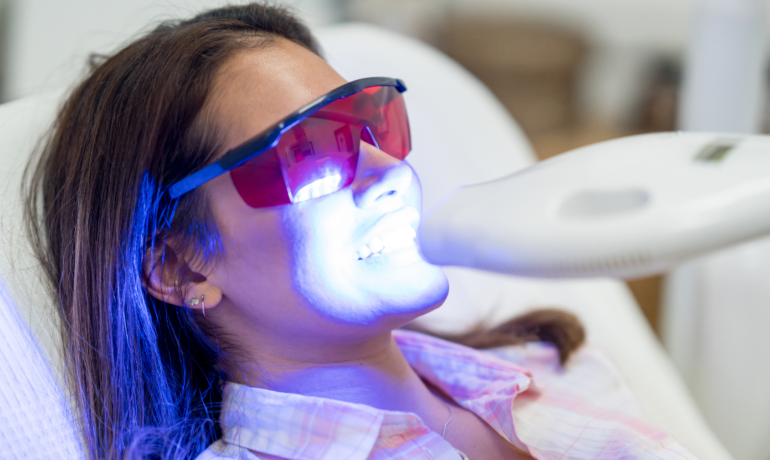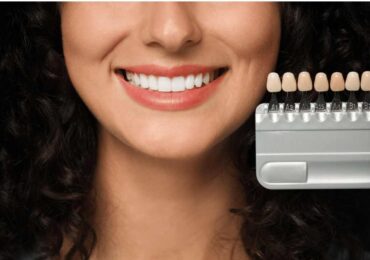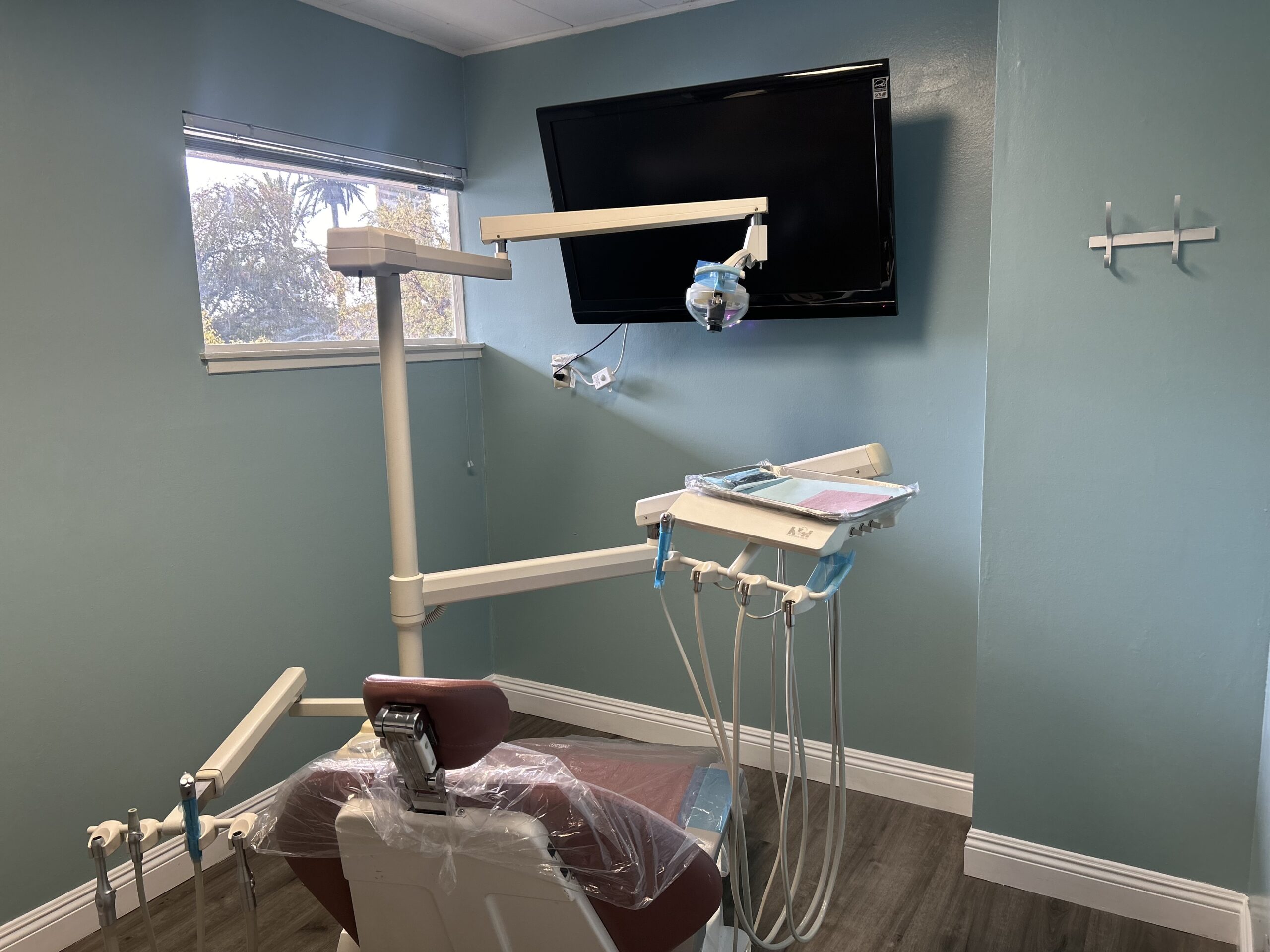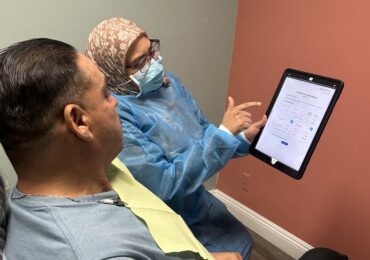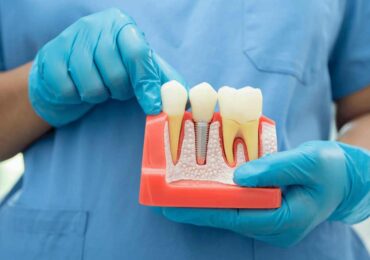Following a teeth whitening procedure, your teeth require some time to adjust, much like freshly painted walls. Your tooth enamel needs to adjust, just as paint takes time to dry.
Because your teeth gradually change color over time, teeth whitening aftercare is essential. Various factors, such as daily routines and ingesting specific meals and beverages, can cause discoloration.
To keep your teeth in excellent condition, here are helpful recommendations on food and teeth whitening aftercare.
But to make the most out of these aftercare tips, it’s essential to understand how teeth whitening works.
The Science Behind Teeth Whitening
Hydrogen peroxide plays a vital role in the teeth whitening process. This whitening solution breaks down quickly when applied to your teeth. This gel makes contact with your teeth, creating free radicals or tiny scissors that target stain molecules. These free radicals break down stains into smaller pieces. The smaller the stain molecules, the less color they absorb, making your teeth appear whiter.
It’s important to note that hydrogen peroxide works best in a slightly moist environment. That’s why your gums and teeth will be isolated during the procedure to create the ideal conditions.
Since smaller stain molecules are less visible, you want to avoid introducing new or more visible stains right after whitening. That leads us to our next point—the food and drinks you can and cannot take after your teeth whitening procedure.
Foods and Beverages You Can Take After Teeth Whitening
After your teeth whitening treatment, your dentist will most likely recommend a white diet. A “white diet” is necessary to maximize the benefits of teeth-whitening procedures. The “white diet” phase is usually the first 48 hours following teeth whitening.
Light-colored foods
- White meats such as chicken and fish.
- Dairy products like milk, cheese, and yogurt.
- Plain pasta and bread.
Non-Acidic Fruits
- Apples
- Pears
- Bananas
Clear Liquids
- Water
- Coconut water
Foods and Beverages You Shouldn’t Take
Tooth sensitivity is one of the most common side effects after teeth whitening. For people who already have sensitive teeth, teeth whitening procedures can be a bit inconvenient. Nonetheless, there are teeth whitening options for people with sensitive teeth.
Why does teeth sensitivity happen anyway during the whitening treatment? Sensitivity happens because the whitening process can temporarily make your tooth enamel more permeable due to the whitening solution. This exposes the dentin layer beneath the enamel, which contains tiny tubules leading to the nerves in your teeth. When these tubules are exposed, they can be triggered by hot, cold, acidic, or sweet foods and drinks, causing sensitivity and pain.
That said, here is the list of food and beverages you can’t take after teeth whitening. Due to their strong colors, these meals and drinks can quickly discolor your teeth and negate the benefits of teeth whitening. It is also wise to refrain from consuming sweet and sticky meals. They can cling to your teeth, promoting bacterial growth, which leads to potential discoloration.
Highly Pigmented Foods and Beverages
- Coffee
- Tea (both black and herbal)
- Red wine
- Colored fruit juices
- Dark sodas
Acidic Foods
- Citrus fruits (e.g., oranges, lemons)
- Vinegar-based dressings
- Pickles
Dark-Colored Sauces
- Tomato-based sauces
- Soy-based sauces (e.g., soy sauce, teriyaki sauce)
Sticky and Sugary Foods
- Candies
- Caramels
- Dried fruits
Common Mistakes Teeth Whitening Patients Make
Although food and drink are significant causes of tooth discoloration, it’s important to remember that other factors may also lead to staining. Here are common mistakes patients make after the teeth whitening procedure.
- Smoking. The chemicals in tobacco products can leave stains on your teeth.
- Neglecting Oral Hygiene. The whitening treatment alone is not sufficient to maintain your white teeth. Keeping proper dental hygiene is essential for the whitening effect to last and for stains to be avoided.
- Ignoring Sensitivity. Ignoring tooth sensitivity following teeth whitening can create discomfort and indicate underlying dental issues, resulting in discolored teeth.
Tips to Maintain a Glowing Smile after Teeth Whitening
Some say teeth whitening is an investment. But what is it good for if you can’t keep it for a long time? Here’s where the following teeth whitening aftercare tips become more critical.
Brush, Floss, Repeat!
What does good oral hygiene mean? It means brushing twice a day and flossing to prevent plaque development.
After teeth whitening, waiting 30 minutes up to an hour before brushing your teeth is generally recommended. Use a soft-bristled toothbrush to avoid causing damage to the enamel. Gently brush all surfaces of the teeth using circular strokes.
Pay Your Dentist a Monthly Visit
Regular monthly cleaning appointments are crucial to keep your teeth white and healthy over time, especially for removing stubborn plaque and tartar that can’t simply be removed through brushing.
Patience is a Virtue
It is advisable to wait at least 48 hours following teeth whitening before returning to their regular diet or food preferences. This period guarantees the long-term durability of the whitening procedure by allowing it to be fully set.
Consider Touch-up Sessions
Even for those who invest in a bright smile with teeth whitening, touch-up sessions become a valuable strategy. This is especially true for public figures in film or showbiz, where a polished appearance or image is paramount.
Keep Hydrated
We can only end this topic by highlighting the significance of hydration. Hydration stimulates salivation, which is essential for neutralizing acids and shielding dental enamel from deterioration. On the other hand, when consuming beverages during the first hours after your treatment, using a straw can help minimize direct tooth-to-tooth contact, lowering the chance of developing new stains.
Remember to Gargle
Foods that are acidic and abrasive should be avoided or consumed in moderation. Instead, use softer substitutes and pay attention to your entire food intake.
If you eat or drink something acidic, rinse your mouth with water to help counteract the acidity and lessen the damage it does to your teeth.
Consult an Upland Cosmetic Dentist
Here’s what we’ve established thus far: teeth whitening, while effective, isn’t permanent. Therefore, following the aftercare routine presented in this article is essential, especially during the 48-hour window.
It lessens sensitivity, protects teeth from stains in the future, and improves dental health in general. Most importantly, choosing the right dentist can make all the difference in providing the greatest care for your smile. Whether you want to whiten your teeth or look better overall, a talented cosmetic dentist from Upland, California, can help you get the smile of your dreams.
Make the first move toward your ideal smile by getting in touch with us here at Upland Dental Practice.
Got Further Questions?
Recent Articles
- 1
- 2
- 3
- 4
- 5
- 6
- 7
- 8
- 9


